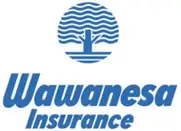The Need
A strong people function to support the transformation needed to modernize the company for the challenges and opportunities of the future.
The Solution
A corporate learning and development program for leaders of all levels aligned to the company’s strategic priorities.
The Result
A notable increase in leadership bench strength, as well as increases in multiple employee engagement dimensions, including leadership development, leader effectiveness, managing performance, and change and communication.
Wawanesa Insurance is the largest property and casualty insurer in Canada, with operations spanning across the United States. Providing services to more than 2.1 million customers, the company employs more than 3,500 people, and has a long history dating back to 1896.
In the fall of 2018, Wawanesa began going through significant change and transformation as a result of what most organizations face today—increasing customer expectations, technology, innovation, competition, and an increasingly complex regulatory environment. In order to continue to transform in the face of these challenges, the company knew it needed a strong people function to support its transformation strategy.
“With a longstanding history of being regionally dispersed across Canada and the U.S., each subsidiary operated very autonomously, so over the last several years, we’ve placed a lot of focus on operating more as one,” says Jodi Carradice, Senior Vice President & Chief People & Culture Officer at Wawanesa. “In order to take on the transformation and to modernize Wawanesa for the challenges and opportunities in front of us, this is how we have to operate—and it starts with making the employee, customer, and broker experiences more consistent across all our operations.”
Creating a Learning & Development Culture
As part of its "One Wawanesa" strategic initiative, the company partnered with DDI to create a corporate learning and development strategy, prioritizing the creation of a leadership development program to help drive its culture to accelerate transformation, taking a data-driven approach with progress checks along the way.
They began with DDI’s Talent Strategy Model to guide the effort and ensure the program aligned to the company’s strategic priorities. The model also introduced a holistic framework, Success ProfilesSM, to identify the competencies, personal attributes, knowledge, and experience that defines an ideal performer.
“With DDI, we were able to establish the foundational building blocks to ignite and accelerate our transformation,” said Rossana Buonpensiere, Vice President, Talent & Organizational Development. “Our focus was the alignment of critical skills so all leaders would be driving accountability within a high-performance culture.”
Wawanesa began with a six-month leadership development program for its first two levels of leadership, frontline supervisors and managers. This program included a combination of blended learning—a mix of webinars, classroom sessions, face-to-face meetings, and more. It featured multiple courses and microcourses from DDI’s Frontline Leadership development system including Communicating for Leadership Success, Coaching for Peak Performance, Executing Strategy at the Front Line, Driving Change, Building and Sustaining Trust, Developing Yourself and Others, and Setting Goals and Reviewing Results.
The program opens with Wawanesa executives participating in the kick-off and concludes with executives congratulating each graduating leader.
“We wanted to send the message home to the participants in the program that this is important, and we believe in you,” said Carradice. “We want each participant to know that we feel that developing you is a win-win for all of us.”
Over the course of those six months and with the involvement of their direct managers, participants create their own development plan, which includes the opportunity to build peer networks.
“We want participants to get ideas about how to do things differently from their own colleagues across the entire organization,” Buonpensiere said.
At the outset of the program, participants complete an assessment to create a level of self-awareness.
During the program design phase, the company ran a pilot that began with participants completing Manager Ready®, DDI’s frontline manager assessment, which allowed Wawanesa to assess the strengths and development needs of current frontline leaders.
“We really love Manager Ready and got some terrific feedback from our leaders," said Buonpensiere. "They got a lot of good information to use for their individual development plans, but this made us realize that we also wanted data for succession planning and building our talent pool.”
Taking the Manager Ready feedback and additional requirements, DDI worked with Carradice and Buonpensiere and their colleagues to implement Early Identifier, an assessment that measures both performance and potential. Early Identifier provided the Wawanesa team the data they needed not only to advance their leadership development program, but to support their succession management strategy.
“With DDI, it’s a true partnership. Because of this partnership, we’ve been able to pivot and change quickly, making modifications fast and running a new pilot in the matter of just a few weeks,” said Buonpensiere. “After a successful pilot, it was with similar speed that we were able to roll out Early Identifier for use across our entire program.”
Impact on Leaders, Teams, and the Business
With nearly 75 percent of Wawanesa leaders having gone through the program, and with immediate plans to enroll the remaining 25 percent, a mix of around 300 supervisors, managers, and directors have graduated in total.
One year after the launch of the program, employee engagement survey results rose three to five percent in various engagement dimensions, including leadership development, leader effectiveness, managing performance, and change and communication. Notably, there was a four percent rise in leaders who feel they are seeing investment and commitment from the company in terms of developing their leadership skills, and a five percent lift in overall leader effectiveness (as rated by non-leaders throughout the company).
Wawanesa credits DDI’s Impact Evaluation Survey for its ability to continuously improve course offerings based on survey feedback, prove the program’s ROI, and capture the impact the courses have on the business and in creating positive behavior change.
The results of the impact survey clearly indicate that positive behavior change in Wawanesa leaders had occurred. According to survey respondents who were program participants, 62 percent of Wawanesa’s leaders were effective, as reported pre-program, growing to 93 percent after the program. From the observer-perspective, 64 percent said Wawanesa leaders were effective, as reported pre-program, jumping to 85 percent after the program.
In terms of team impact, 90 percent of direct reports indicated increased engagement, and 86 percent indicated an increased focus on his/her own development as a result of their leaders participating in the program. In addition, 85 percent of program participants report an increased feeling of value from the organization, and 94 percent have increased engagement in being a leader.
Just as important, Wawanesa’s leadership bench strength increased. Since implementing the leadership development program, 90 percent of participants’ managers reported an increase in the overall number of capable leaders within Wawanesa who can execute on the company’s key strategic objectives. In addition, 89 percent of participants’ managers reported an increased overall quality of leaders at Wawanesa, 92 percent reported a higher standard of leadership, and 89 percent reported an increased focus on employee development as a result of the program.
It’s All About Alignment
While the quantitative data is telling, what Carradice and Buonpensiere are most excited about is the qualitative data.
“To hear directly from our leaders that they are able to have more effective conversations with their teams and that their teams are getting really good continuous feedback—that there’s coaching happening, rather than directing—that’s what it’s all about,” says Buonpensiere.
“What’s also really encouraging is that we’re hearing this same positive feedback from leaders across multiple areas of the organization, showing us that the consistency of the programming has resulted in us all talking the same leadership language,” added Carradice.
When asked what has made the program so successful in the short time since it has been launched, Carradice and Buonpensiere agree that alignment has had a lot to do with it.
“It’s the first time ever that we’ve got a leadership program that is aligned to the goals of the organization,” Carradice said. “We’ve served up our leaders a current, digital, and flexible learning program they can all get behind. It’s not just a week of class and then it’s done—it’s a continuous, ongoing program that will continue to feed our organizational success and align to our overall strategy.”
As a result of the program:
- More than 300 leadership graduates in the first 18 months
- Five percent increase in leader effectiveness, as rated by non-leaders throughout the company
- Four percent lift in leaders who feel they are seeing investment and commitment from the company when it comes to developing their leadership skills
- 90 percent of direct reports indicate increased engagement, and 86 percent indicate an increased focus on his/her development as a result of their leaders participating in the program
- 85 percent of program participants report an increased feeling of value from the organization, and 94 percent have increased engagement in being a leader
- 90 percent of participants’ managers report an increase in the overall number of capable leaders, 89 percent report an increased overall quality of leaders, 92 percent report a higher standard of leadership, and 89 percent report an increased focus on employee development
Discover how DDI can help accelerate your leaders for maximum business impact.
Topics covered in this blog


